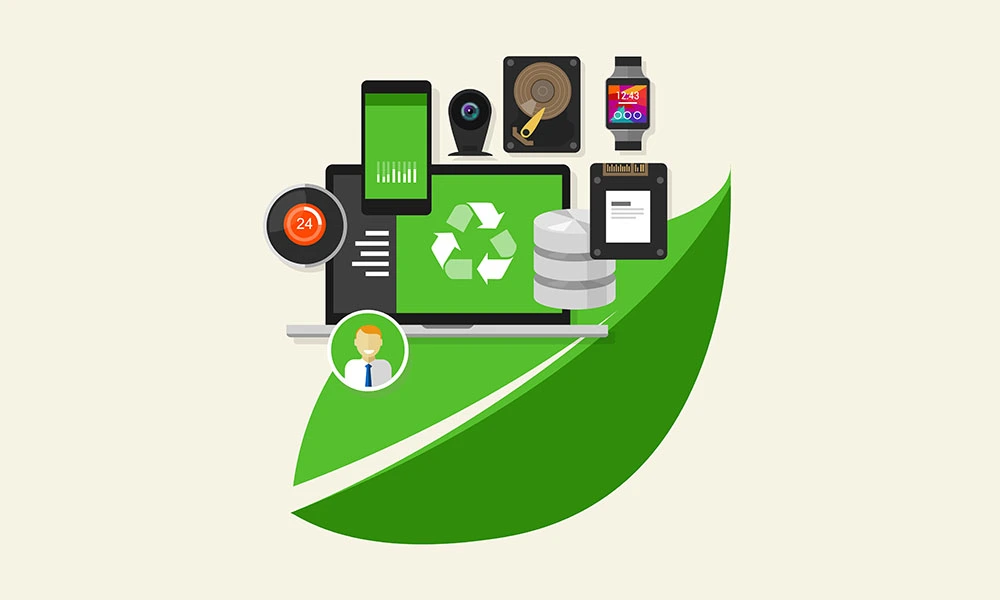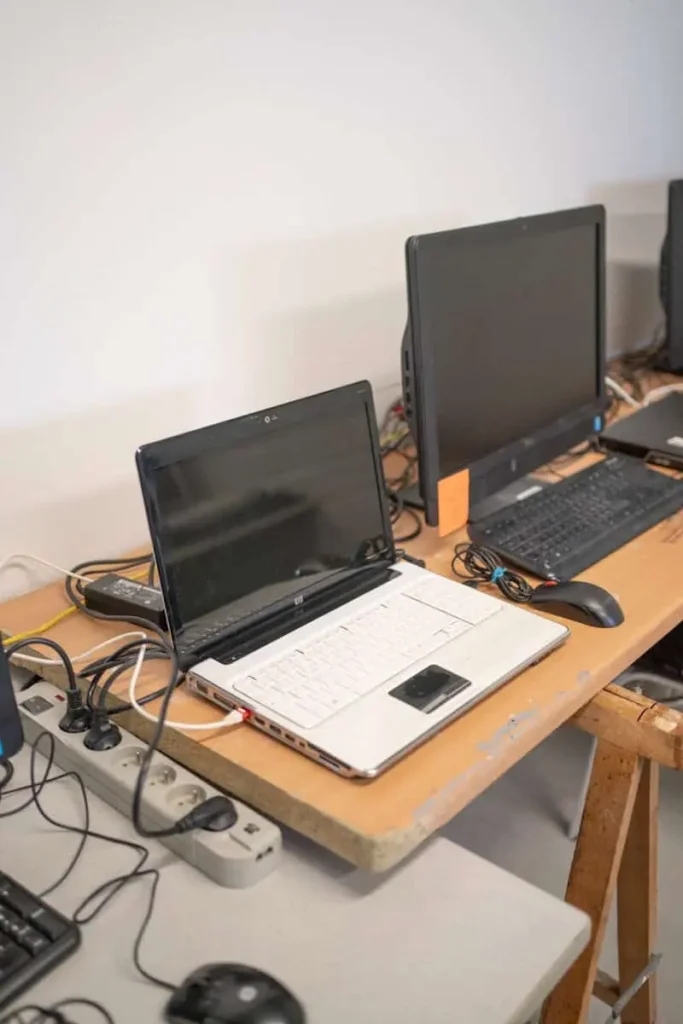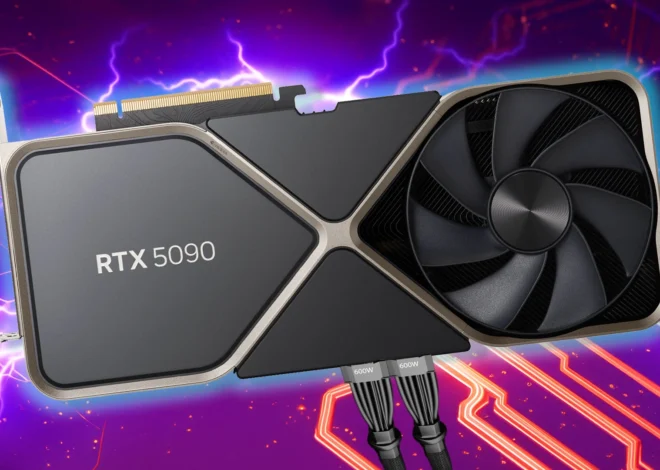
How to Recycle Old Computers
Recycling computers is important because it helps protect the environment and keeps harmful materials out of landfills. There are convenient ways to safely get rid of old devices. You can take your old computer to electronics stores, recycling centers, or use mail-in programs. Old computers contain valuable materials, but they also have hazardous substances that can harm the environment if not disposed of properly. It’s important to choose the right recycling method to ensure responsible disposal and minimize environmental impact. First, back up your files and wipe the hard drive to protect your data.
Then find a nearby recycling spot. Many big stores like Best Buy take old computers for free. Some places even offer rewards for recycling. Recycling computers keeps toxic substances out of the trash, saves energy, and conserves resources needed to make new devices. By recycling, you’re helping the planet and might even earn rewards too.

Responsible Disposal: Options for Recycling Your Computer
Retail Drop-Off Programs:
Many electronics retailers like Best Buy offer computer recycling programs. They often accept various types of electronics, not just computers. Some may even offer incentives like store credit for your old devices.
Manufacturer Take-Back Programs:
Several computer manufacturers have their own recycling programs. Check with your computer’s manufacturer to see if they offer free or discounted recycling options for their products.
Certified E-Waste Recyclers:
Look for certified e-waste recyclers in your area. These companies specialize in responsible electronics recycling and ensure that hazardous materials are handled safely.
Donation and Reuse:
If your computer is still in working condition, consider donating it to a local charity, school, or non-profit organization. This gives your computer a second life and helps those in need.
Community Recycling Events:
Many communities host periodic e-waste recycling events. Check with your local government or environmental agencies to find out when and where these events are held.
Comparing Recycling Options:
| Option | Pros | Cons |
|---|---|---|
| Retail Drop-Off Programs | Convenient, often accepts a variety of electronics, may offer incentives | May have restrictions on the types and quantities of items accepted |
| Manufacturer Take-Back Programs | May be free or discounted, ensures proper recycling of their products | May only accept their own brand of products |
| Certified E-Waste Recyclers | Specializes in safe and responsible electronics recycling | May not be as convenient as retail drop-off, may charge a fee |
| Donation and Reuse | Gives your computer a second life, helps those in need | Requires ensuring the computer is in working condition and data is wiped securely |
| Community Recycling Events | Free and convenient way to dispose of e-waste | Events may be infrequent |
Key Takeaways
- Back up data and wipe the hard drive before recycling
- Many stores and centers offer free computer recycling
- Recycling computers protects the environment and saves resources
Understanding Computer Recycling
Computer recycling helps protect the environment and recover valuable materials. It keeps toxic substances out of landfills and saves energy.
The Importance of Recycling Computers
Recycling computers is crucial for our planet. Old computers contain harmful chemicals like lead and mercury. These can leak into soil and water if thrown away. Recycling stops this from happening.
It also saves energy and resources. Making new computers takes a lot of power and raw materials. Recycling old parts reduces the need for new ones. This cuts down on mining and manufacturing.
Many useful materials can be recovered from old computers. Gold, silver, and copper are found in circuit boards. Plastic cases can be melted down and reused. Even the glass from monitors can be recycled.
What Can Be Recycled
Almost every part of a computer can be recycled. The main components include:
- Monitors
- Hard drives
- Motherboards
- Keyboards
- Mice
- Speakers
- Printers
Even cables and batteries can be recycled. Many electronics stores take old computers for free. Some cities have special e-waste drop-off events too.
Before recycling, remove any external devices. Take out the hard drive if you plan to keep it. Make sure to recycle printer ink cartridges separately.
Data Security and Hard Drive Disposal
Protecting personal data is key when recycling computers. Old hard drives can hold sensitive info like bank details or passwords. Don’t just throw them away!
There are a few ways to erase data safely:
- Use special wiping software to overwrite the drive
- Physically destroy the drive with a hammer or drill
- Remove the drive and keep it in a safe place
Many recycling centers offer secure data destruction. They’ll wipe or shred your hard drive for you. Always ask about their data security policies before handing over your computer.
For extra peace of mind, back up important files before recycling. Then do a factory reset on your device. This helps ensure your data doesn’t fall into the wrong hands.
How to Recycle Your Old Computers
Recycling old computers helps protect the planet and keeps harmful materials out of landfills. There are many ways to safely get rid of outdated tech.
Preparing Your Computer for Recycling
Back up your data before recycling. Copy important files to an external drive or cloud storage. Then wipe the hard drive clean. For Windows, go to Settings > System > Recovery. Click “Reset this PC” and choose “Remove everything.” For Macs, restart and hold Command+R. Open Disk Utility and erase the drive. Then reinstall the operating system. Remove any batteries and ink cartridges. These need special recycling.
Choosing the Right Recycling Option
Many stores take old electronics. Best Buy and Staples offer free recycling for most items. Some give store credit for trade-ins. Apple takes back its products and offers gift cards for newer devices. Office supply stores often have drop-off bins. Earth911.com lists local recycling spots. You can search by item type and zip code. Some cities have e-waste events or permanent drop-off sites.
Donation and Trade-In Programs
Working computers can help others. Goodwill takes electronics at many locations. They fix and resell items or recycle them safely. World Computer Exchange sends refurbished PCs to schools in poor countries. Computers with Causes gives them to people in need. Local schools or libraries might want old tech for parts or learning tools. Some stores offer trade-in deals. You can get credit toward new gear.
Local and State Regulations
Check your area’s rules on e-waste. Some states ban electronics from trash. California charges a small fee on new screens to fund recycling programs. Other states make makers take back old products. The EPA website lists each state’s laws. Your city or county website may have info on local drop-off spots or special collection days. Some areas offer free pickup of large electronics.
Specialized Recycling Centers and Services
E-waste recyclers handle items stores won’t take. They often charge small fees but ensure proper recycling. Best Buy’s Geek Squad will haul away old tech for $199.99. This includes TVs and up to two large items. Some companies offer mail-in recycling. They send you a box and cover shipping costs. Always pick certified recyclers. Look for e-Stewards or R2 certification. These groups follow strict rules to protect data and the environment.



